Jeju islanders collectively mourn historic South Korean massacre
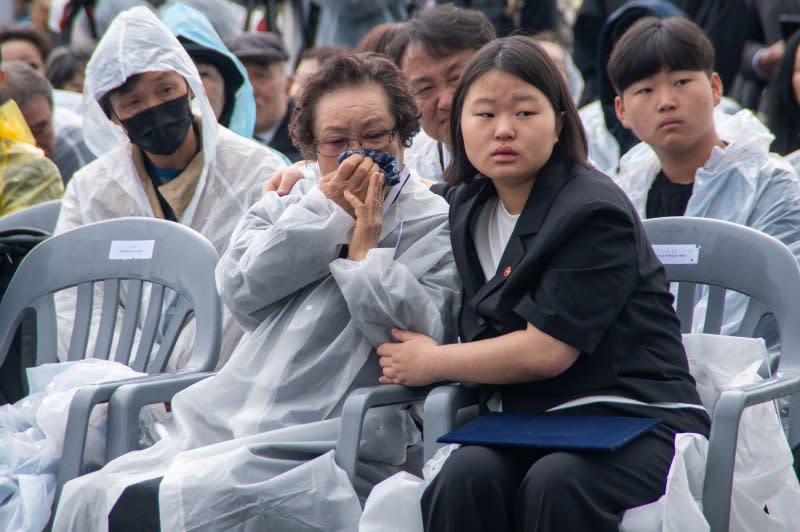
JEJU ISLAND, South Korea, April 3 (UPI) -- Thousands of Jeju islanders endured the wind, rain and fog on Wednesday to come together to collectively mourn the deaths of their loved ones during a memorial ceremony honoring the tens of thousands killed by South Korean forces nearly eight decades ago.
Dignitaries, such as Prime Minister Han Duck-soo and Jeju Gov. Oh Young-hun, spoke during the 76th anniversary ceremony held at the Jeju 4.3 Peace Park near Jeju City to memorialize the 30,000 Jeju islanders, or 10% of the island's population at the time, who were killed between 1947 and 1956 during what has since become known as the Jeju April 3 Incident, or simply 4.3 in Korean.
Those in attendance were mostly in their 70s, 80s and 90s and many were children when their parents, siblings or other family members were killed by South Korean forces seeking to eradicate communists on the island, who had launched a poorly armed uprising on April 3, 1948, and were viewed as a threat to the newly founded country.
Shin Yong-soon, 79, was performing Jesa memorial ceremonies for his father and grandfather in front of their names etched into marble slabs erected in the park on Wednesday.
He said he was 3 years old when his grandfather was shot to death and his father disappeared, now considered one of the more than 4,000 people who went missing during the massacre and presumed dead.
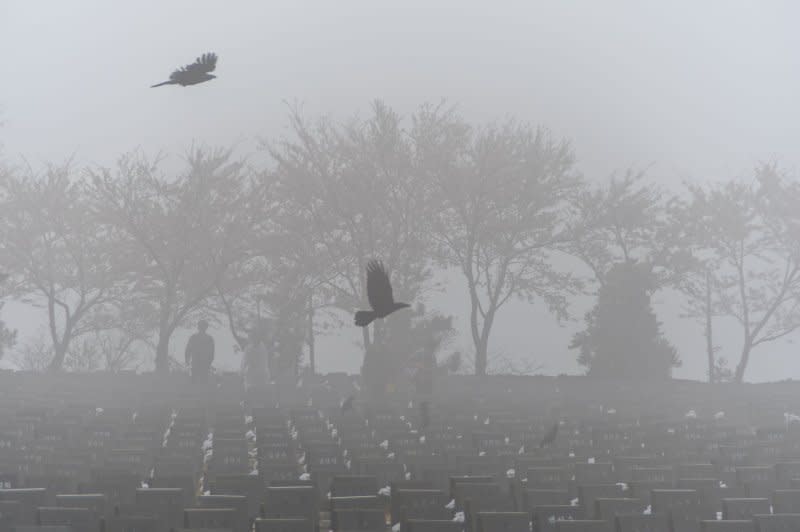
"I don't remember their faces," he told UPI.
His wife, 78-year-old Go Jeong-saeng, was 2 years old when her father, along with 31 other people, were rounded up in a snowy field and massacred.
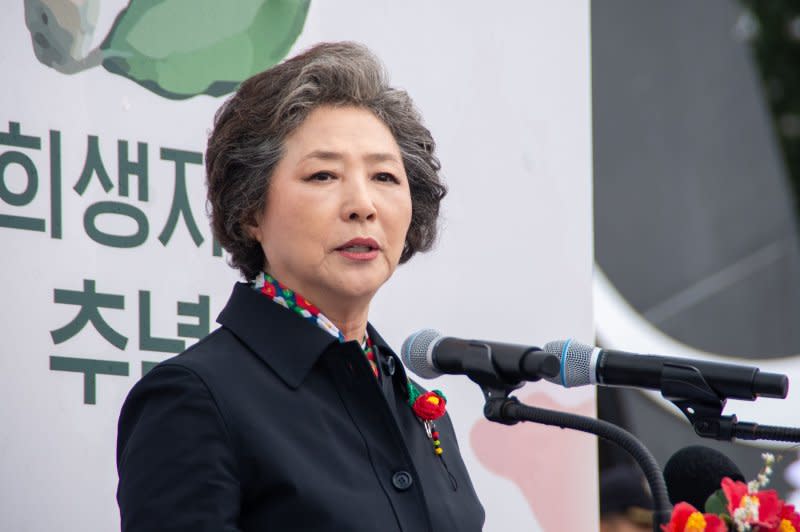
She said at least she has a photo of him.
"But my husband doesn't have a photo of his father, so I wish he could see his face at least once more," she said. "I, too, would like to see my father's face. I wish I could hold his hand just once, or even see him in my dreams."
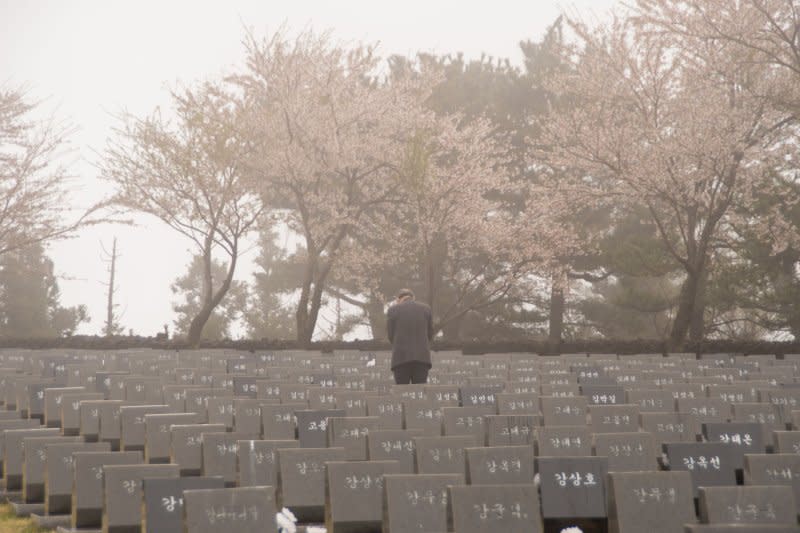
In prepared remarks, the prime minister said it was South Korea's "fundamental duty" as a nation to honor the victims of the massacre and comfort the pain of their bereaved families.
"Our government is doing its utmost to mend and heal the wounds of the April 3 Incident, so that we can move forward toward a future of reconciliation and unity," he said.
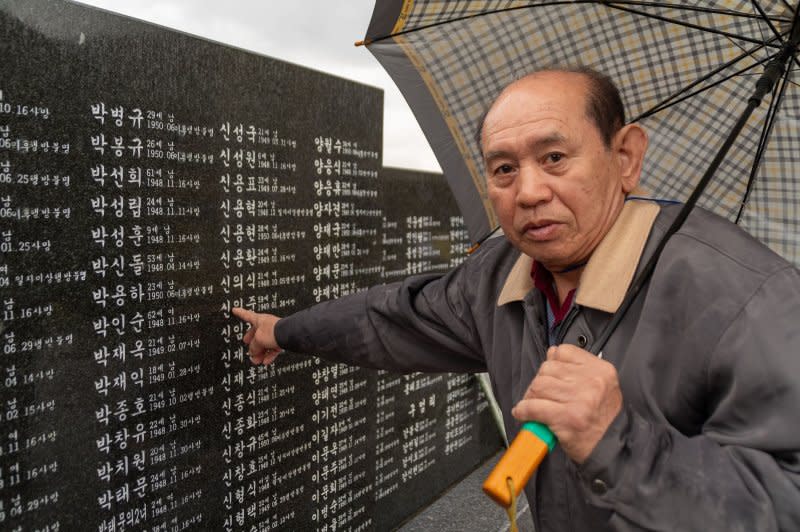
The prime minister spoke in the place of President Yoon Suk-yeol, whose absence was announced earlier this month. No sitting conservative president has ever participated in the memorial, with Yoon attending as president-elect in 2022.
The Jeju governor told UPI a day before the ceremony that it was "very unfortunate" that Yoon would not attend as his participation shows the government's "firm stance" in support of financial compensation for bereaved families and the restoration of the victims' honor.
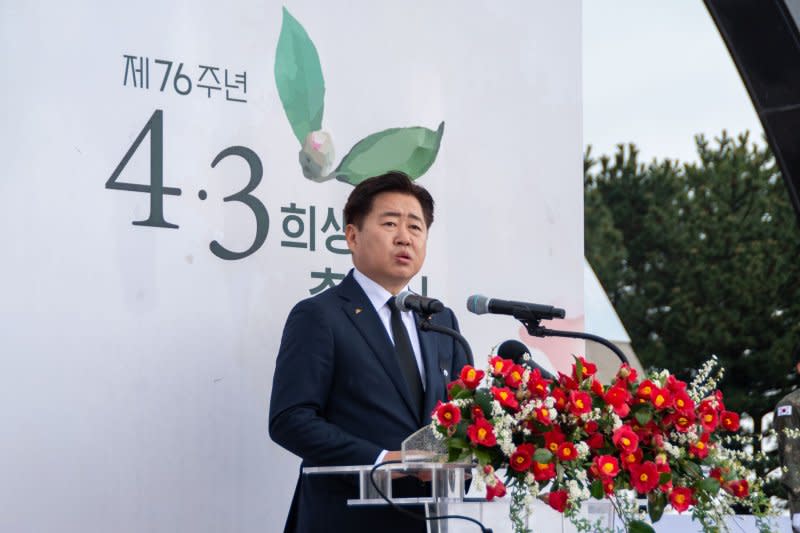
"But we will invite him next year," Oh added.
Shin Young-ja, 82, who visited the ceremony to honor her grandfather, great-grandfather and great-uncle who died in the massacre, was more resigned to the president's absence.
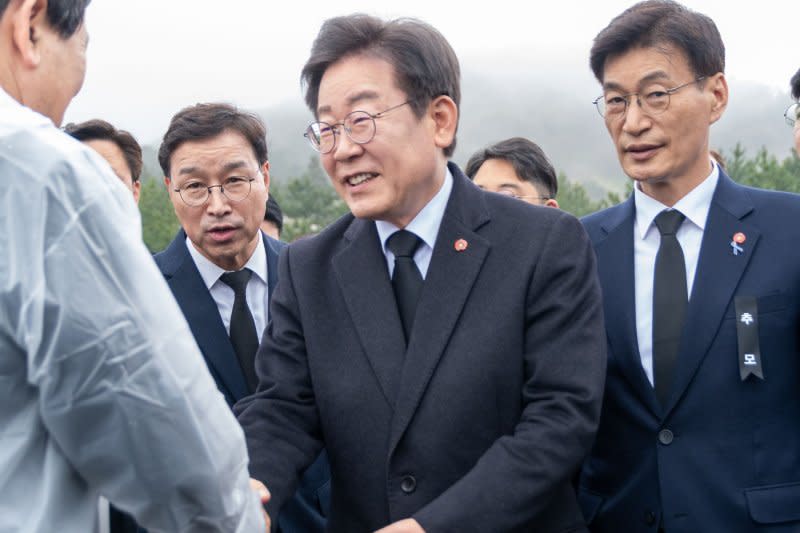
"There's nothing to be done," she said. "It's regrettable because if the president comes it would be something to be grateful for and happy about, but if he can't come, there's nothing to be done."
Controversy has always loomed over the massacre.
Last year, banners were erected across the island stating the uprising, which was the catalyst of the government suppression campaign, was ordered by then-leader and founder of communist North Korea Kim Il-sung, though there is no proof to support such a claim. The memorial service last year was also confronted by what is believed to have been its first protest of right-wing extremists who were emboldened by the development.
In response, there is a movement to pass legislation to make spreading disinformation about the massacre punishable under the law.
Ban Youngkwan, team manager of the research department at the Jeju 4.3 Peace Foundation, a public interest organization that strives to preserve the history of the massacre, told UPI in a phone interview that they are in favor of bringing some sort of punishment against those who say "highly incorrect" statements.
However, right now, their interest is in completing data on such content being published in public media, as well as on YouTube and other places online, with hopes of producing a report in the fall.
"We are just collecting data," he said. "Not taking action yet."
Oh also said that he agrees "to a certain degree" that such a policy punishing disinformation about Jeju 4.3 is necessary, but that it is "a bit premature" to discuss specifics.
"Public sentiment needs to be created before the bill will be passed," he said.
The ceremony was held as the number of registered survivors has dropped from 114 in 2022 to 103 as of the end of last year.
Lee chun-ja, 82, told UPI that she visits the park once a year to offer alcohol and flowers for her father who died when she was 6 during the massacre.
Coming to the park brings up old memories and makes her feel sad to be around so many others who have lost as she has, some even more.
"My heart aches," she said, holding back tears. "How many innocent people died? Who on earth is guilty for this? When I see women who lost their husbands at a young age, I feel sorry for them."
Kim Jung Lim contributed to this report.

